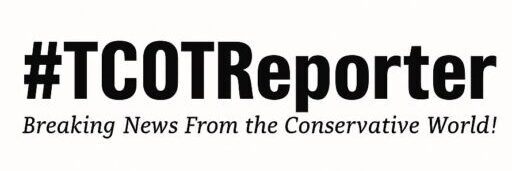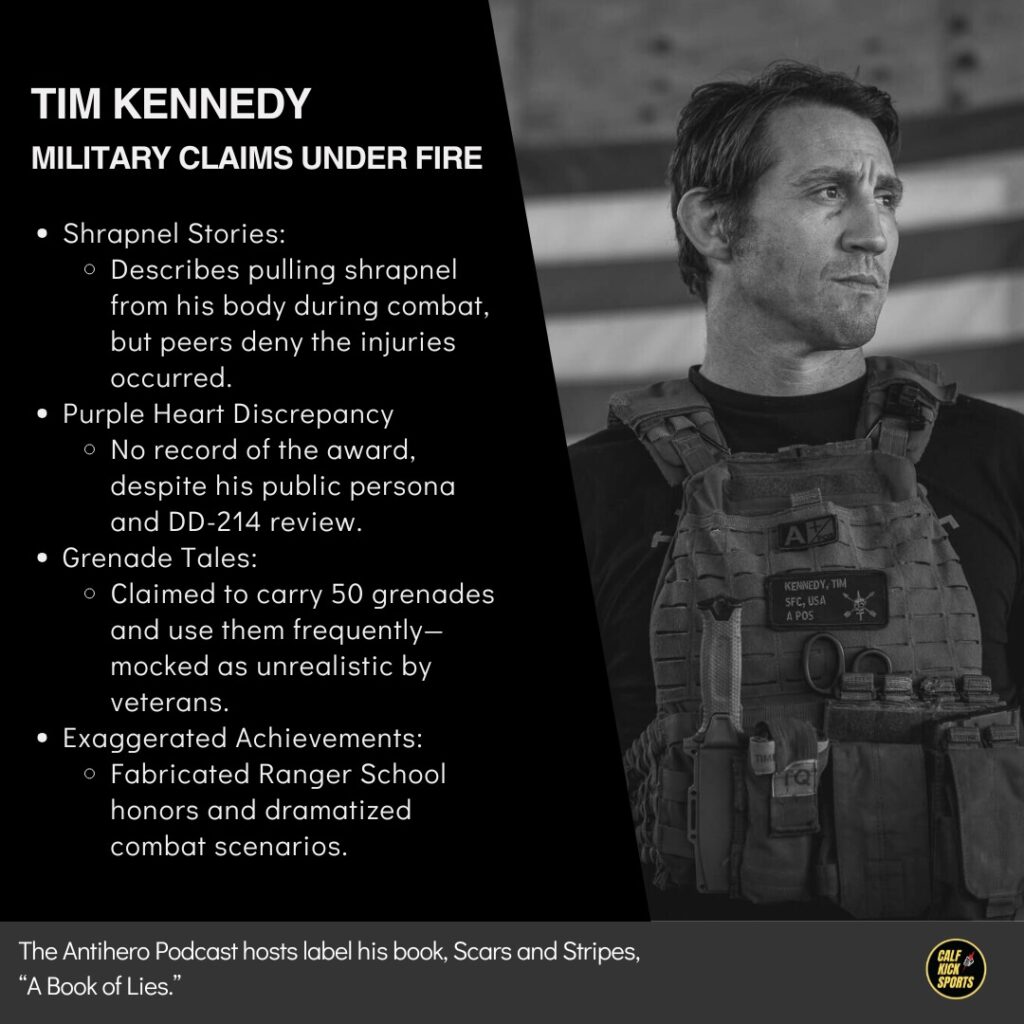America loves a hero. The Pentagon loves a brand. And Tim Kennedy — mixed-martial-arts fighter, television commando, and self-styled “Green Beret badass” — gave both exactly what they wanted: a walking, talking recruitment poster wrapped in a flag, weighted with medals that don’t all shine the same under scrutiny.
For years, Kennedy was paraded as the archetype of the post-9/11 warrior. UFC fighter. Special Forces sniper. CIA contractor. Public motivator of men. But beneath that mythos is a string of exaggerations, omissions, and flat-out fabrications that would have buried any rank-and-file soldier in paperwork, demotion, or worse. Instead, Kennedy became an influencer with a uniform — a man too useful to embarrass.
The Legend Factory
In the years after Iraq and Afghanistan, the Department of Defense realized something: Americans had stopped believing in the wars but still believed in the warriors. Kennedy’s story, a mixture of Hollywood grit and Ranger-School melodrama, filled that gap perfectly. He was the living, breathing proof that valor and victory were still products the Pentagon could sell.
Then came the cracks. Veterans began comparing timelines. Service records didn’t line up. Medals appeared without citations. The deployments Kennedy bragged about on podcasts looked suspiciously out of sync with official unit histories. Brent Tucker of Antihero Podcast finally pulled the threads together — dozens of them — cross-referencing award databases, unit logs, FOIA disclosures, and most importantly directly interviewed those who served with Kennedy, all of which painted a less cinematic picture.
The result: the “hero” narrative didn’t survive contact with the truth.
The Gaps in the Glory
According to reporting by Military.com and Business Insider, several of Kennedy’s high-profile claims — including combat valor decorations, CIA assignments, and the scale of his deployments — couldn’t be substantiated through military records. Some of the most colorful stories in his memoir and media appearances directly contradict official accounts.
Yet instead of correction or censure, the machine just kept humming. Kennedy’s brand was too valuable. He embodied the seamless merger of the military-industrial complex and the influencer economy: a recruitment algorithm in human form.
A Useful Myth
In Washington, authenticity is optional when the narrative sells. Kennedy appeared on Joe Rogan and Discovery Channel’s Hunting Hitler, pushing a mix of patriotism, paranoia, and protein powder that reached audiences the Pentagon could never touch. When the Army’s recruiting crisis hit, his motivational sermons were shared across official channels.
Nobody asked why a man whose résumé had already been questioned was suddenly the voice of official patriotism. Nobody dared. His popularity insulated him. He had become a “Made Man” — not by mafia standards, but by bureaucratic ones.
The Institutional Cover
That protection isn’t accidental. The U.S. military has long understood the value of controlled mythmaking. From Audie Murphy to “American Sniper,” public-relations heroism has been its own branch of service. But Kennedy’s case shows how far the system has drifted. The institutions meant to verify the truth — the same ones that discipline soldiers for misplaced paperwork — looked away because the lie was good for business.
FOIA requests for Kennedy’s award citations came back redacted or missing. Pentagon spokespeople cited “privacy considerations.” The Army’s own public affairs officers, when pressed by Business Insider, couldn’t confirm key details Kennedy had made central to his legend. When the Antihero Podcast asked for on-record comment, the silence was deafening.
A veteran familiar with the inquiry told the show: “If they pull that thread, the sweater comes undone. It’s easier to protect the brand.”
The Cost of the Lie
For veterans who actually lived the grind, the damage is personal. Every unearned medal, every inflated mission, every exaggerated tale cheapens the currency of service. The military’s refusal to correct the record tells younger troops that branding beats honor — that if you’re loud enough, your version of the truth becomes official.
This isn’t about one man’s ego; it’s about institutional rot. The same system that courts influencers to fix recruiting numbers can’t bring itself to fact-check its own poster boys. Kennedy may have built his myth, but the Pentagon franchised it.
A Propaganda Loop
It’s easy to dismiss Kennedy as another social-media narcissist, but that misses the larger story. The state created him. It built the platforms, funded the imagery, lent its credibility to his exaggerations, and then pretended to be shocked when the myth became inconvenient. He was the Pentagon’s perfect influencer — until the receipts arrived.
Even now, when confronted with evidence, official spokespeople respond with that great bureaucratic incantation: “We take these concerns seriously.” Translation: they’ll wait for the next scandal to make this one old news.
The Fallout That Never Came
In any other profession, fabricating parts of your résumé would end your career. In the military-industrial PR machine, it just means you book more speaking gigs. Kennedy still tours, still preaches “truth and toughness,” and still cashes checks from audiences who never saw the retractions that never came.
It’s not heroism anymore — it’s heritage branding.
The Real Battle
If Kennedy’s story reveals anything, it’s that American militarism has entered its influencer phase. The enemy isn’t across the ocean; it’s the algorithm. The soldier who survives combat used to come home scarred. Now he comes home verified.
The tragedy isn’t that Tim Kennedy lied. It’s that the system needed him to.
Citations
- Military.com – “Tim Kennedy’s Military Claims Under Scrutiny Amid Growing Questions” (March 2025)
- Business Insider – “Veteran MMA Star’s Service Record Doesn’t Match His Story” (April 2025)
- [Antihero Podcast – Brent Tucker – Tim Kennedy: The Book of Lies] (2024–2025 episodes 101, 106 & 135)
- [Department of the Army FOIA Response Letters – Release Logs 2024–2025]
- [U.S. Army Public Affairs Office – Statement to Business Insider on Tim Kennedy] (April 2025)

